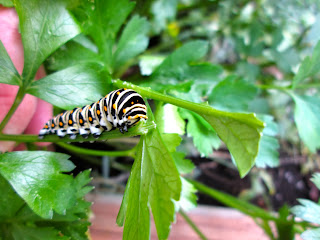 |
| Photo courtesy Deborah Ford |
Jan Bowman's review of K. L. Cook's 2010 award-winning story collection, Love Songs For The Quarantined, was published online by Trajectory Journal: Writing That Illuminates - March-April 2013.
K. L. Cook’s story collection, Love Songs For The
Quarantined, winner of the 2010 Spokane Prize for Short Fiction,
realistically probes the pain of lost dreams. These 16 stories sing of promises
we make, not only to significant people in our lives (spouses, children,
siblings, parents, and friends), but also to ourselves. The collection of
stories examines the woven strands between people, as they negotiate those
promises, betray them, and keep them, even when keeping them has the probable
outcome of destroying aspirations.
From the opening
story, “Bonnie and Clyde in the Backyard”
(previously published in Glimmer Train) to the final story “Relative Peace,” Cook’s
stories explore the power of longing for family love that eludes, and the long-term
shame these narrators live with, as a result of all the subtle betrayals of those
they love and those they should love. While the first story seems to be out of
time with the other 15 stories, a careful rereading suggests that unity of
theme, the ambiguity of strained relationships, is the glue that holds the
collection together throughout. Whether the strain comes from a sick or dying
child, an unspoken lie, or animosity between brothers, fine, thread-like
strands, filaments, connect family as surely as muscle, bone and DNA.
For
example, that theme of strained relationships, tenuously bound with toxic ties,
drives the powerful story, “Filament”
in which a sliver of metal in Blue Simpson’s eye drives his downward spiral.
The first paragraph of this masterfully crafted story tells the reader
everything, except the how and then what, in a way that resonates with readers long after the book is closed.
Filament, a term used in biology to
describe linked protein structures, provides form and substance to tissue. It is
also used to denote part of the male part of a flower, the stamen. These
stories ring with the masculine voice, even when masterfully using full-blown
omniscience or second person voices. The ‘masculine’ voice here sings of the
body in second person stories like “What
They Didn’t Tell You About A Vasectomy,” giving this story and others, a view
of the inner world of the modern family-oriented male. In this story the
narrator, who has agreed with his wife’s decision to have no more children,
betrays her trust by withholding information about his elevated sperm
count.
“You hover above your wife. A glistening thread connects you to her, and
you watch for a second as it stretches between you both, an ordinary miracle.
You imagine, in that split-second, the contents of the luminous thread under a
microscope, millions of tadpoles swimming in thin milk, their tails wriggling
frantically. Alive.
Go, you think. Go!”
The story “Orchestration” sings of the joys, and
the heartbreaking, mind-numbing chaos of family life with small children. The
male voice sings of family with the aching thrum of a blues singer. It’s an
amazing two page, one-sentence song that first appeared in Harvard Review. Such is the power of these complex links that
structure a family.
Long chains
of thread-like protein connect end-to-end in these stories, like those found in
hair and muscle. And in these Love Songs
for the Quarantined, fine shimmering threads connect families in love and
betrayal, and to the subsequent joy, grief and guilt that is inherent in
families.
K. L. Cook is the author of two books of
fiction: Last Call, winner of the Prairie Schooner Book Prize; and The Girl
from Charnelle, winner of the Willa Award for Contemporary Fiction and an
Editor’s Choice selection of the Historical Novel Society. He teaches at
Prescott College and Spalding University’s brief-residency MFA in Writing
Program and the University of Iowa.
Trajectory Journal: Writing That Illuminates - Spring 2013, Issue 6 - published Jan Bowman's Interview with K. L. Cook. And it has been also published online at the website for Willow Springs Editions. The complete interview can be read:
Willow Springs Editions - under events section. Or go to Jan's Facebook site.
==================================
About Jan Bowman
Winner of the 2011 Roanoke Review Fiction Award, Jan's stories have been nominated for Pushcart
Prizes, Best American Short Stories, a Pen/O’Henry award. Glimmer
Train named a recent story as Honorable Mention in the November 2012 Short
Story Awards for New Writers.
A recent story
was a finalist in the 2013 Phoebe Fiction Contest; another
was a 2012 finalist in the “So To Speak” Fiction Contest. Jan’s fiction has appeared in
numerous publications including, Roanoke Review, Big Muddy, The Broadkill Review, Third Wednesday, Minimus, Buffalo
Spree (97), Folio, The Potomac Review, Musings, Potato Eyes and others.
She is working on two collections of short stories while shopping
for a publisher for a completed story collection, Mermaids & Other Stories. She has nonfiction publications in Trajectory
and Pen-in-Hand.
She writes a weekly blog of “Reflections” on the writing life
and posts regular interviews with writers and publishers. Learn more at: www.janbowmanwriter.com or visit blog: http://janbowmanwriter.blogspot.com
















